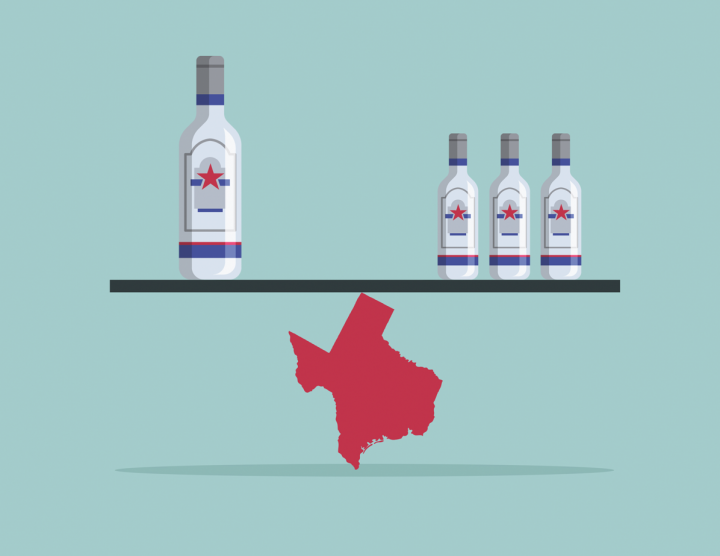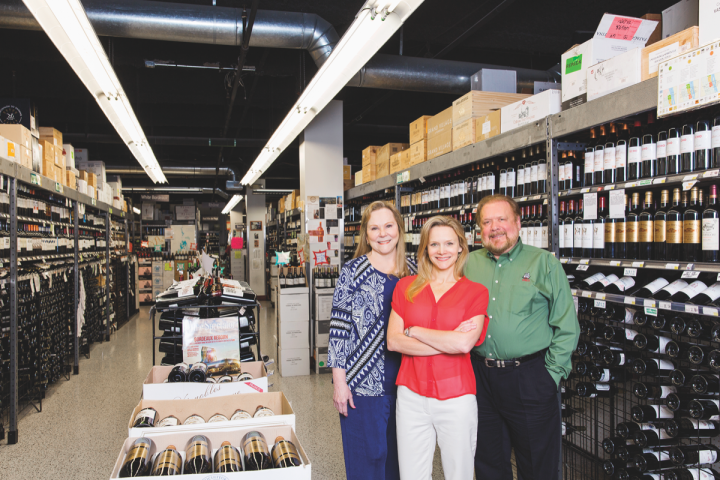
It will likely be a year of watching and planning for independent retailers in Texas. The state legislature meets every other year, and 2018 is a non-session year. Nevertheless, there are some looming issues that will keep retailers and the Texas Package Stores Association (TPSA) on alert and ready to react. “It’s an off-year, but that doesn’t mean we’re not engaged on a few different fronts,” says Lance Lively, executive director of the TPSA. “We need to be prepared for what’s coming.”
Concerns from retailers and the TPSA tend to center on two main issues. The first involves a lawsuit filed by Walmart Inc. against the Texas Alcoholic Beverage Commission (TABC). Walmart is seeking the right to sell spirits at its Texas stores, as the state’s big-box retailers can currently sell wine and beer, but not spirits. The second major hurdle for the industry is a “sunset report” on the TABC slated for next year. “Sunset” is a legislative oversight tool that evaluates the necessity, effectiveness, efficiency, and responsiveness of state agencies. Sunset reports are generally conducted every 12 years.
There are other issues too. Sunday sales are a perennial point of discussion, as are wine shipping laws and beverage alcohol delivery issues. Those issues could come up in the course of next year’s sunset review or separately.

The Walmart Stalemate
More immediately, the Walmart court case is top of mind for many independent retailers. In its lawsuit, Walmart and three of its subsidiaries claim that Texas’ laws are unconstitutional. The mega-retailer contends that statutes regulating the retail sale of spirits violate the Equal Protection and Dormant Commerce clauses of the U.S. Constitution. The TPSA joined the lawsuit in late August 2016 after appealing and winning an earlier court decision that barred the group from becoming involved. Specifically, Walmart objects to a law that prohibits publicly traded companies from holding liquor licenses.
At press time, those involved were waiting for a decision in the trial, which was held last summer. But whichever way the court decides, sources say it’s almost inevitable that the decision will be appealed. “The Walmart issue is out there,” says David Jabour, president of Twin Liquors, the Austin-based retail chain. Defeat for the state and the TPSA would mean “a significant change in how our business is done,” he says. “I don’t think there would be a retailer or outlet that wouldn’t be impacted.” Twin Liquors operates a total of 83 stores in Texas, second only to Spec’s Wine, Spirits & Finer Foods, which has 165 locations in the Lone Star State.
Austin Keith, president and owner of the Odessa, Texas-based retail chain Pinkie’s Inc., says that if the decision goes against independent retailers, “it opens up everything, so to speak.” Allowing big-box chains into the spirits sales arena is “taking a pie and reducing it down to a Hostess Twinkie,” he explains, noting that every retailer’s share of the total business would get smaller. “With the high cost of today’s business environment, just to put the key in the door to open it takes a certain amount of revenue,” Keith says. “We need the revenue stream that spirits provide,” he adds, noting that wine and beer are already sold at Walmart and other big-box and grocery stores around the state. Pinkie’s has 15 stores in Texas, yet Keith feels that if Walmart, Amazon, and others gain open access to the market he won’t be able to compete. “I won’t have the buying power,” he says.
The TPSA also makes the argument that an expansion of liquor licenses would drive overall sales of distilled spirits higher. “Right now Texas is 42nd in per-capita consumption of spirits,” Lively says. “I can tell you that’s a good place to be—you don’t want to be No. 1 in that category.” He adds that store owners should have a connection to their communities. “We have retailers that are beholden to their communities because they live and work there and they’re owners,” Lively adds. “They have to answer to their constituents.”
The looming changes haven’t deterred retail giant Total Wine & More, which has made Texas a major priority in its national expansion plans. Total Wine opened 25 new stores in 2017, and 13 of those were in Texas. “Our most important markets now are Texas and California, and that’s clearly where our expansion focus is,” says Total Wine co-owner David Trone. “We see great opportunities in both of those markets,” he adds, noting the strength of the Lone Star State’s economy. At present, Total Wine has 24 locations in Texas. Nationwide, it finished 2017 with a total of 173 stores.

Rapid Evolution
While retailers await the decision in the Walmart case, they’re also looking ahead to next year. The state’s sunset review could bring any number of changes to existing liquor laws. “It’s on everyone’s mind,” Lively says, not least because of the uncertainty surrounding the issues or policies that might come under scrutiny. “Every segment of the industry looks at this process, worries, and looks for opportunities.”
Any number of issues could come to the fore. “For example, we don’t have Sunday sales in Texas, and the package store association doesn’t want that to change,” Lively says. “Other organizations want it, so they may see it as an opportunity to get it tacked on to that bill.” He notes that the independent retailers have managed to kill that issue in every single session in the last 20 years. Minnesota legalized Sunday sales last year, and independent retailers there widely saw the move as detrimental because the change increased operating costs without substantially raising sales. “That’s just one example of what’s going to go on,” Lively says, adding that distilleries and wineries will also have their own agendas. Whatever issues arise, several of them are likely to be contentious. “The sunset years bring the spotlight on the industry from a legislative perspective,” he adds.

Booming Market
Despite the uncertainty, industry players say that the demand for beverage alcohol in Texas is strong. “Everybody seems to be reporting that they had a great year,” notes Lively. In Odessa and the surrounding towns, business is booming due to the energy industry. Keith of Pinkie’s calls the region the “Silicon Valley of the petroleum industry.” Still, even a boom has its downsides. When entry-level petroleum jobs pay upwards of $30 an hour, it’s tough to find enough workers willing to work for retail wages, and Keith reports that retaining staff has become more difficult.
Jabour of Twin Liquors also describes a strong business environment despite high levels of competition. “We added several units last year, and we have several units under construction currently,” he says. “We have more in the works in 2018, so we’re actively looking to expand in the marketplace with various forms of stores, both neighborhood and destination-style.”
Both Jabour and Keith say that the changing landscape of online retail and home delivery is another potential threat to their businesses. “We have to look at where delivery will go and what the mix will be in terms of delivery versus in-store sales,” says Jabour. “That’s fluid right now.” Twin Liquors is focusing heavily on the in-store experience and on personal relationships between staff and customer. “That’s ultimately a significant added value that can only be partially mimicked online,” he says. “That’s why we make sure to have educated team members who are professionals in the industry.”
Keith worries about the potential impact of online sales. Currently, there are laws regulating shipping or delivering across county lines in Texas, but the issue could come up for debate during the legislative review. In fact, Keith says that in the long term, he is “more worried about the online business” than about the Walmart liquor sales decision. Still, for Keith, optimism abounds. “I feel very confident right now,” he says. “We’ll just see what happens with Walmart, and if it happens, it happens. I’ll regroup and see what I have to do.”